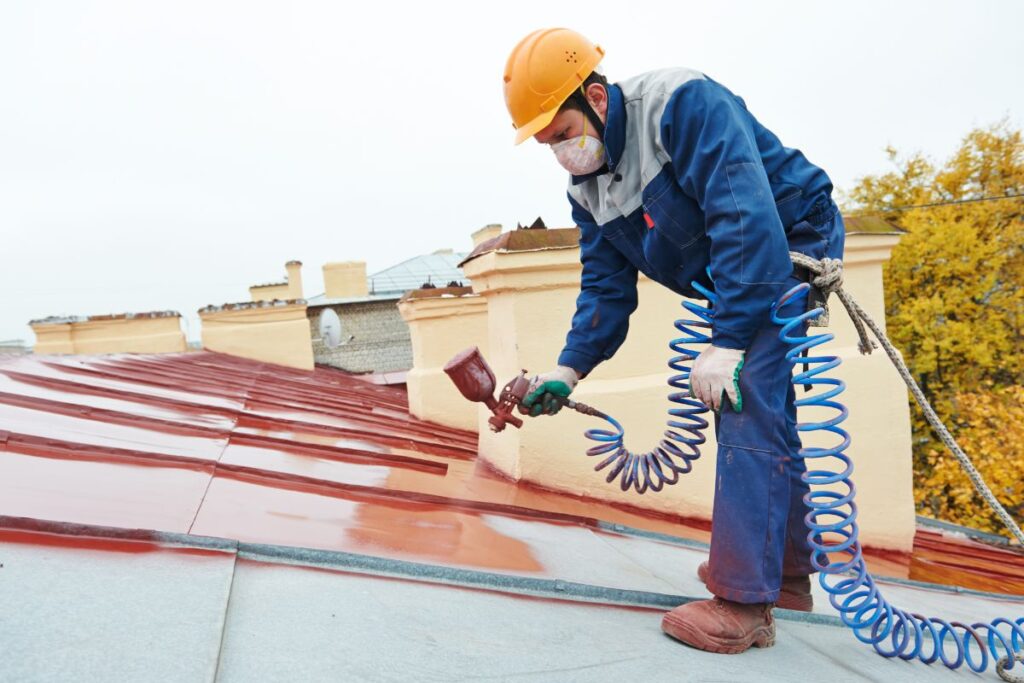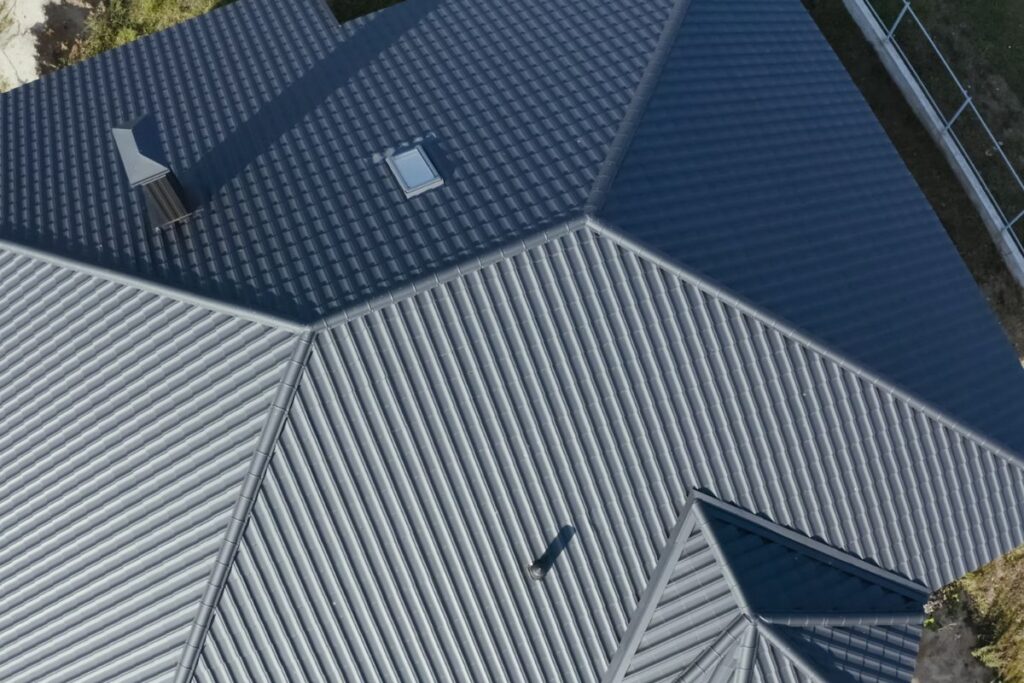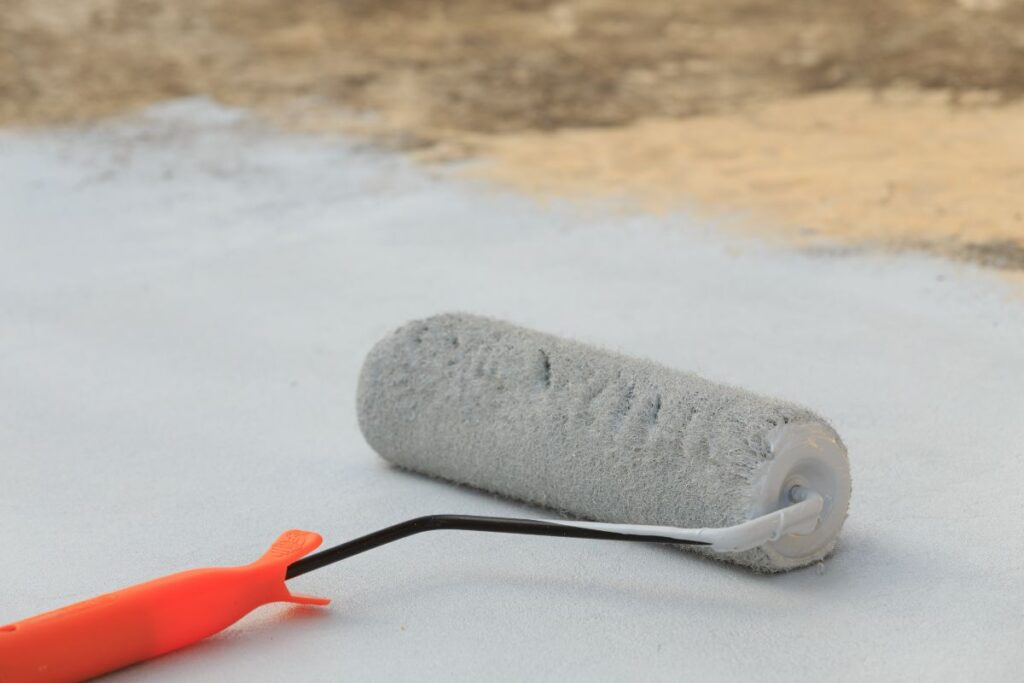The use of roof coatings is a proactive approach to increase the lifespan of your roof and boost its performance. These products create a resilient barrier that protects the roof from the detrimental effects of the weather, UV radiation, and general wear and tear. The market offers a diverse range of roof coatings, each designed to meet specific needs. Let’s explore the different types of roof coatings and their unique advantages.
- Silicone Coatings
Silicone roof coatings are known for their superior UV resistance and weatherproofing capabilities. They are also excellent for areas that encounter heavy rainfall, as they resist ponding water without weakening over time.
Advantages:
- Excellent weather and UV resistance
- Retains its properties under constant exposure to water
- No need for a primer in most cases
- High solids content allows for greater coverage
- Acrylic Coatings
Acrylic roof coatings are water-based solutions that offer excellent reflectivity, reducing energy costs by keeping buildings cooler. They are also environmentally friendly, emitting fewer volatile organic compounds (VOCs).
Advantages:
- Cost-effective solution
- High UV resistance and reflectivity
- Environmentally friendly with low VOCs
- Variety of colors available
- Polyurethane Coatings
Polyurethane roof coatings are split into two types: aromatic (less UV stable, but highly resistant to physical damage) and aliphatic (UV stable and retains color). They are ideal for areas with heavy foot traffic due to their high tensile strength.
Advantages:
- Excellent resistance to mechanical damage
- Withstands heavy foot traffic
- Resistant to water ponding
- Adheres well to multiple substrates
- Asphalt Coatings
Asphalt roof coatings, made from bitumen or a blend of asphalt and rubber, provide an excellent waterproof barrier. These coatings can be applied hot or cold and are best suited for flat roofs or low-sloped roofs.
Advantages:
- Superior waterproofing
- High flexibility, allowing for movement without cracking
- Adheres well to various surfaces
- Affordable and easy to apply
- Elastomeric Coatings
Elastomeric roof coatings are rubber-like coatings that can stretch and recover to resist damage from temperature fluctuations. They are applicable to a wide range of roof types.
Advantages:
- High elasticity prevents cracking
- Resistant to extreme weather conditions
- Reduces heat absorption
- Extends roof lifespan
Choosing the right roof coating will depend on the type of your roof, your climate, and the specific needs of your property. Whichever coating you select, you’ll be adding an extra level of protection that helps maintain the integrity of your roof, leading to long-term cost savings and peace of mind. At Kiwi Roof Masters, we offer comprehensive roof restoration service. For more info, please contact.


